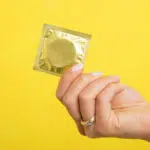Organ Donor Day is celebrated on February 14 annually as a nod to one of the greatest gestures of love. Valentine’s Day celebrates love and what better way to celebrate ultimate love than receiving an organ donation? It is a day to celebrate people who have saved lives in countless ways by donating blood marrow, blood, and organs. Families also remember people who have donated their organs or blood to save their loved ones in their times of need. If you can, donate your blood or tissue today.
History of Organ Donor Day
Legally, an organ can be taken and transplanted from a donor, either while the donor is still alive or after their death, with the approval of the donor’s family members. Donations can be made to further scientific knowledge or, more typically, healthy organs and tissues might be donated to be transplanted into another person.It is not uncommon for people to be given organ transplants for a wide range of reasons. A kidney or part of the liver, part of the pancreas, part of the lungs, or intestines can be donated by a living donor, but most organ and tissue donations are made after the donor has died. Ronald Lee Herrick (1931 to 2010), who donated a kidney to his identical twin brother in 1954, was the first living organ donor in successful transplantation. When a newborn with anencephaly was born in 2014, he lived for just 100 minutes and gave his kidneys to an adult with renal failure.Until 2016, the oldest known cornea donor was a 107-year-old Scottish woman. Upon her death, a 95-year-old West Virginia man became the oldest known organ donor for an internal organ. In 2014, an 85-year-old British woman became the oldest altruistic live organ donor when she donated a kidney to a stranger after learning how many people in the country needed a transplant.
Organ Donor Day timeline
The Czech Republic’s Eduard Zirm performs the first successful corneal transplant.
Dr. Richard H. Lawler of Chicago, Illinois, performs the first successful kidney transplant.
At the Hospital Universitari Vall d'Hebron in Barcelona, Dr. Joan Pere Barret and his team perform the first full facial transplant on July 26.
The first live birth after a successful uterus transplant happens in Sweden.
Organ Donor Day FAQs
Which is the most donated organ?
The most donated organ by living donors is the kidneys.
Which organ self-regenerates?
The liver is the only organ that can self-regenerate, meaning while alive, you can donate a lobe of your liver.
Which organs can I donate?
You can donate kidneys, heart, lungs, liver, small bowels, and pancreas. You can also donate tissues such as bone, skin, veins, tendons, and eyes.
How to Observe Organ Donor Day
-
Donate blood
One of the ways to celebrate Organ Donor Day is to donate blood. Rather than a one-time thing, you can make it something to be done as often as possible. Blood is very important as it is needed in surgery and to save lives in the emergency room, so there can never be a thing such as too much blood.
-
Register as an organ donor
You can take it a step further by registering as an organ or tissue donor to help those in need. Each year the number of people who need transplants grows considerably higher. It is a pretty easy process to register as an organ donor; you can sign up online or in person at your local Department of Motor Vehicles (D.M.V.) office, but be sure to talk with your family members about your organ donation. As long as you are registered, you don’t always have to carry your donor card around and you can always change your mind.
-
Encourage donation
You can raise awareness about the need for donations and encourage other people around you. Donate blood with a friend or family member and make it something that you do as often as possible. You can also encourage other people to donate via social media.
5 Interesting Facts About Organ Donation
-
100,000 in need
More than 100,000 people are currently in need of an organ donation that can save their lives.
-
Added to transplant list
Every 10 minutes, a person is added to the transplant waiting list.
-
Eye donation
75 lives are saved or improved with an eye donation.
-
Blood donation
Every two seconds, a person needs a blood transfusion, making blood donation an essential donation, and three people can be saved with a single pint of blood.
-
53 days
A pint of blood can be donated by a person every 53 days.
Why Organ Donor Day is Important
-
It saves lives
Organ donations save lives, or at the very least one life. For some people, they are freed from costly routine medical treatments and procedures, allowing them to live a free life without being dependent on medical intervention or finally becoming free from pain.
-
Last wish
You can take charge of your afterlife by donating your organs. One organ donor can save as many as eight lives. It is a great way to be remembered and play a part in changing other people’s lives. It is a good idea to put your wishes in writing and advise your family to submit information and documents on your medical and social history.
-
Organ donation is free
The great thing about organ donation is that it is free. You can donate your organs at no added cost to you or your family. All costs are covered by the recipient of the organ and the organ recovery organization.
Organ Donor Day dates
| Year | Date | Day |
|---|---|---|
| 2023 | February 14 | Tuesday |
| 2024 | February 14 | Wednesday |
| 2025 | February 14 | Friday |
| 2026 | February 14 | Saturday |
| 2027 | February 14 | Sunday |












































